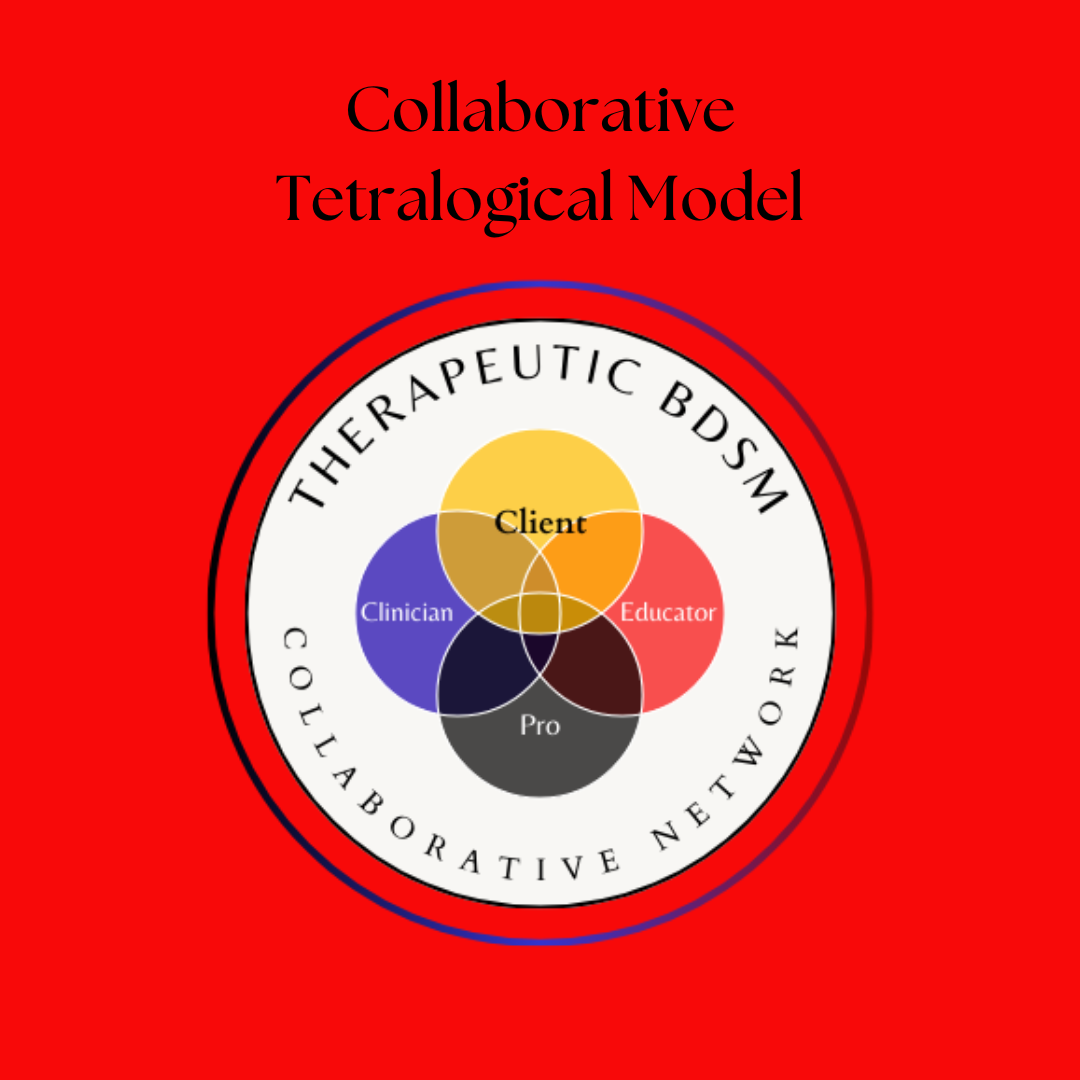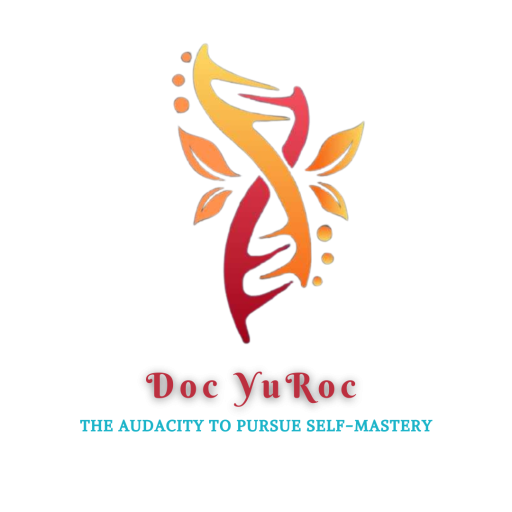Discover the Power of Therapeutic BDSM
A Revolutionary Collaboration for Healing and Connection
Welcome to a groundbreaking resource that bridges the gap between mental health and BDSM.
About the Therapeutic BDSM Collaborative Network
The NETWORK is a collective of VETTED Kink Knowlegable Clinicians, Educators, and Pro Practitioners committed to working collaboratively in service to those interested in Therapetuic BDSM as an alternative form of healing for trauma release, self-discovery, and empowerment.
What is Therapeutic BDSM?
Therapeutic BDSM is a trauma-informed, collaborative approach that uses BDSM dynamics to facilitate healing, self-awareness, and empowerment. In this dynamic, the clinician, pro practitioner, and client each play distinct but interconnected roles.
- The clinician provides a therapeutic foundation, guiding the client through prework, such as Self-Reconciliation Therapy, to ensure they’re emotionally and mentally prepared for the BDSM experience. This prework is essential for uncovering trauma triggers, setting boundaries, and fostering self-awareness.
- The pro practitioner brings their expertise in BDSM to create controlled, consensual scenes that align with the client’s therapeutic goals. They collaborate closely with the clinician to ensure that the experience is safe, supportive, and transformative.
- The client is the focus, engaging in the scene, using the experience to process trauma, explore emotions, and develop a healthier relationship with themselves and others, under the guidance of both the clinician and practitioner.
Ongoing therapeutic services with the clinician are crucial, as they provide a consistent space for processing emotions, integrating experiences, and ensuring the client’s well-being throughout the journey. This collaboration between clinician and pro practitioner allows for an effective, holistic approach to healing.

Role of the Educator
Educators serve as the foundation of knowledge and awareness that ensures the entire network operates with a shared understanding of BDSM, trauma, intersectionality, and therapeutic principles. Their primary function is to equip all members, clinicians, pro-practitioners, and even clients, with the necessary educational tools and frameworks to navigate BDSM in a therapeutic, ethical, and trauma-informed way.

Who is Therapeutic BDSM For?
Individuals who consider Therapeutic BDSM may have a range of reasons, concerns, issues, and mental health diagnoses. These factors often intersect, influencing why someone might seek out therapeutic BDSM as a tool for healing or self-exploration. Here’s a detailed look at some of these
Introducing the Therapeutic BDSM Collaborative Network
The Therapeutic BDSM Collaborative Network is a pioneering idea that unites Kink Knowlegable Clinicians, BDSM Pro Tops and Bottoms, and Kink/BDSM Educators. Our mission is to provide a safe and inclusive space for individuals seeking alternative methods to address trauma, facilitate healing, increase self-awareness, and rescript ones relationship with themselves, their bodies, and with others.
Collaborative Network Members
Clinicians
Clinicians in the Network are licensed mental health professionals who are “Kink Knowledgeable,” not just curious, friendly, or aware. Clinicians will demonstrate knowledge via approved documented training or an extensive interview.
Clinicians will also be trained in Self-Reconciliation Therapy and Therapeutic BDSM techniques as part of their onboarding process. They play a crucial role in working closely with clients to identify therapeutic objectives, negotiate scenes, and address any emotional or psychological concerns that arise while collaborating with pro-practitioners to ensure that scenes are conducted safely, ethically, and therapeutically.
Pro Practitioners
Professional BDSM Practitioners are experienced individuals certified in Applied Therapeutic BDSM who engage in BDSM scenes with clients as part of their therapeutic process. They are skilled in various BDSM techniques and understand the nuances of integrating these practices into a therapeutic context.
Educators
Educators in the Network are experts in BDSM and kink education. They provide training, resources, and educational support to clinicians, practitioners, and clients, enhancing understanding and promoting safe practices within the therapeutic BDSM framework.
Referrals
TBCN Referral Service
1. Referring clients to therapists or to a therapist-pro-practitioner team
2. Referring therapists to well-trained, ethical, professional practitioners.
3. Helping clients and therapists determine whether Therapeutic BDSM is the right intervention for a particular client.
Due to privacy concerns the Therapeutic BDSM Collaborative Network works via referral coordination. Our vetting board is responsible for vetting, training, and maintaining the intergtity of the network. Find our more about our vetting board and and referral process below.
Legal Considerations
Legal risks are an important consideration for all parties involved in therapeutic BDSM work. Here are some general guidelines and principles addressing potential legal risks for clinicians, pro practitioners, educators, and clients, with the goal of minimizing exposure to legal issues:
Legal Considerations for Clinicians
- Licensure and Scope of Practice:
- Ensure that all therapeutic BDSM activities fall within the clinician’s professional licensure and scope of practice. Engaging in activities outside of this scope could lead to professional discipline or legal action.
- Clinicians should maintain clear distinctions between therapeutic work and personal involvement in BDSM activities to avoid conflicts of interest or dual relationships.
- Informed Consent and Documentation:
- Ensure thorough documentation of informed consent, including clear explanations of the therapeutic goals, risks, benefits, and boundaries of therapeutic BDSM.
- All negotiations, consent agreements, and scene-related discussions should be documented in writing to provide a legal record in case of disputes or challenges.
- Mandated Reporting Obligations:
- Understand and comply with mandated reporting laws related to abuse, neglect, or harm. Clinicians should be clear about how consensual BDSM activities differ from abuse, but also be prepared to report any signs of non-consensual harm.
- Malpractice Insurance:
- Secure malpractice insurance that covers unconventional therapeutic approaches such as therapeutic BDSM. Not all policies may cover alternative therapies, so it is crucial to check for coverage.
Legal Considerations for Pro Practitioners
- Consent Contracts:
- Ensure that all activities are consensual and are backed by written agreements that explicitly outline the scope of the scene, the roles, and the limits. This provides legal protection if the boundaries of consent are later called into question.
- Assault & Battery Laws:
- Be aware that certain BDSM activities, even when consensual, can be legally interpreted as assault or battery in some jurisdictions. Ensure that all activities are clearly negotiated and agreed upon in writing to protect against accusations of criminal wrongdoing.
- Sex Work Laws:
- BDSM practices can sometimes be misclassified under laws related to sex work. Be aware of local laws regarding professional BDSM activities, especially if they involve bodily contact or nudity, and ensure compliance with legal frameworks.
- Liability Insurance:
- Pro practitioners should secure liability insurance to protect against potential lawsuits or claims related to physical or emotional harm.
Legal Considerations for Educators
- Accurate and Ethical Information:
- Ensure that all educational content is provided in a way that does not encourage illegal activity, such as non-consensual BDSM practices or activities that violate local laws.
- Disclaimers & Legal Boundaries:
- Include legal disclaimers in educational materials, stating that the content is for informational purposes only and that individuals are responsible for complying with the laws of their jurisdiction.
- Liability for Misinformation:
- Educators should be cautious about giving specific advice that could lead to legal or medical risks. Clearly communicate when individuals should seek professional legal or medical advice outside the scope of the educational content.
Legal Considerations for Clients
- Understanding of Consent and Legal Boundaries:
- Clients should have a clear understanding of what they are consenting to, and they should be aware of local laws surrounding BDSM activities to avoid unintentionally engaging in illegal acts.
- Risks of Disclosure:
- Clients should understand the potential legal risks of disclosing BDSM practices, particularly in legal cases such as custody disputes or employment issues. Privacy and confidentiality are critical, but clients should also be aware of situations where disclosure may carry legal consequences.
- Waivers and Agreements:
- Clients may be asked to sign waivers that release practitioners and clinicians from liability for consensual activities. However, these waivers may not always hold up in court, depending on local laws. Clients should fully understand the legal implications of any agreements they sign.
General Legal Protections and Strategies for All Groups
- Legal Consultation:
- It is essential for all parties to consult with legal professionals who are familiar with BDSM, sex work, and alternative therapy laws to understand their rights and obligations. This includes understanding local laws regarding consensual kink and BDSM practices.
- Risk Management and Compliance:
- All activities should be conducted with clear communication and full transparency. Ensure that all negotiations, scenes, and aftercare are documented to provide a record of consent and compliance with legal and ethical standards.
- Confidentiality Protections:
- Protecting confidentiality through non-disclosure agreements (NDAs) or similar legal documents may help prevent unauthorized sharing of sensitive personal or professional information.
- Crisis and Emergency Protocols:
- Establish protocols for handling emergencies, such as accidental injury or emotional distress during a scene. Knowing how to respond legally and ethically in a crisis can reduce legal exposure.
Join the Brave Space
Are you committed to being a part of a collaborative effort of transformation? Interested in being a part of such an unprecedented movement? Ready to start your application process? Then let us introduce you to our Vetting Board! Click the link below to find out more!

